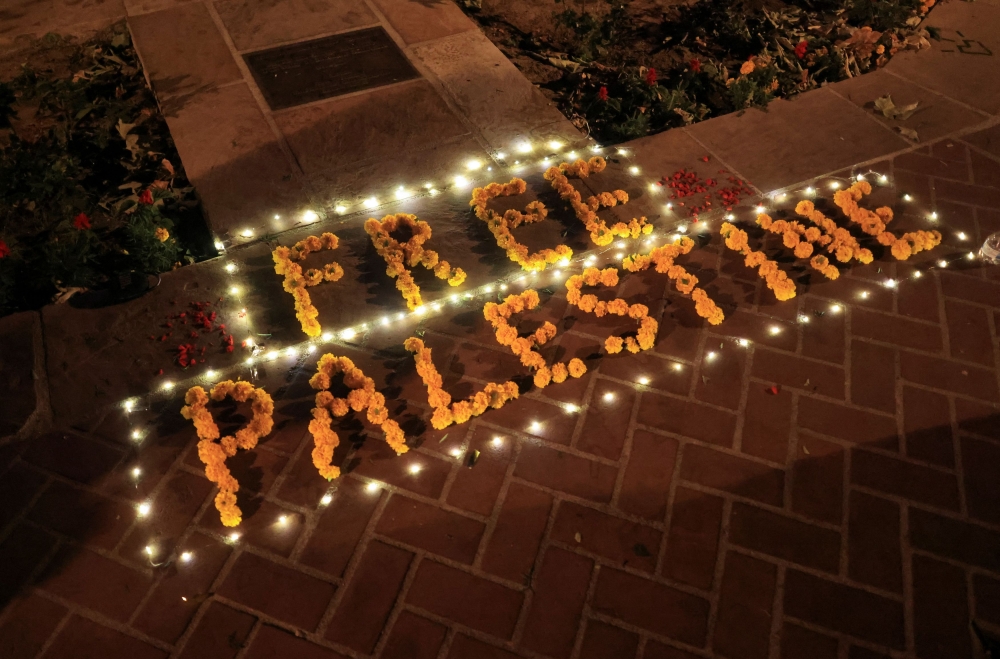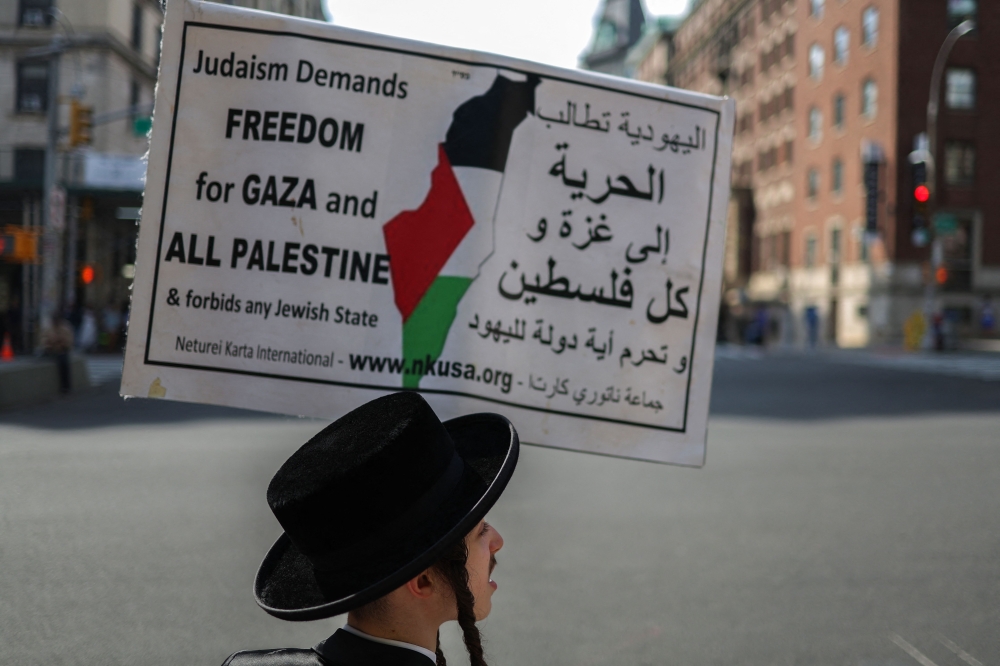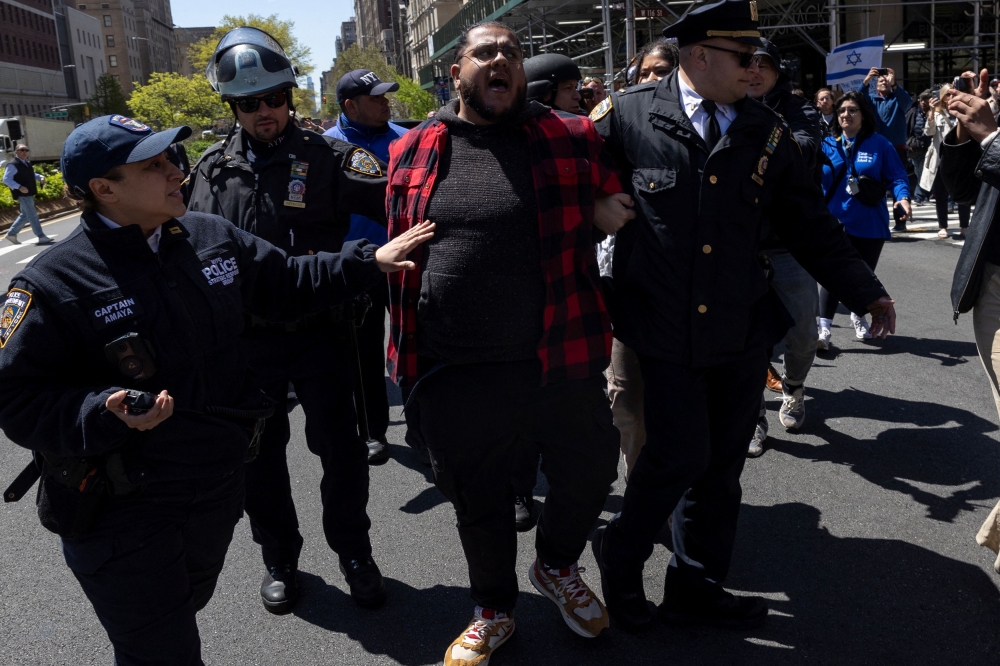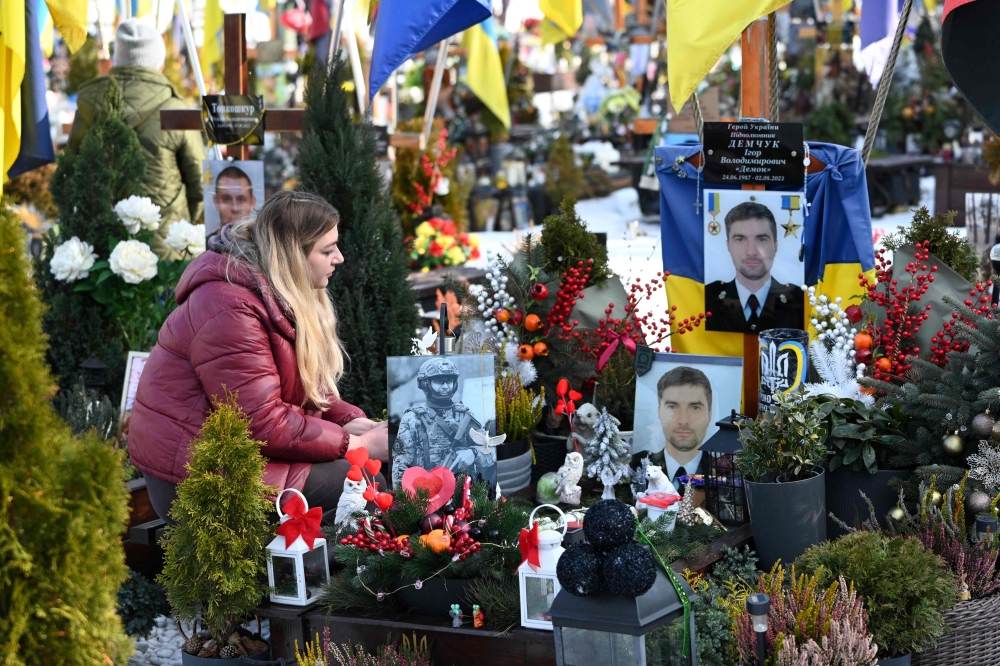PARIS, April 30 — European authorities are clamping down on pro-Palestinian protests, rights groups told AFP, as the Israel-Hamas conflict in Gaza sharply polarises opinion across the bloc.
“We see hate speech laws and we see counterterrorism laws being instrumentalised, being weaponised to go after what is legitimate speech under international standards,” said Amnesty International researcher Julia Hall.
She added that there has been “an avalanche of cancellations and targeting of peaceful protesters, academics, anyone who is basically out there in solidarity with Palestinian human rights or is criticising the state of Israel”.
Hamas’ bloody October 7 assault on southern Israel and the devastating Israeli response have stoked existing rancour over the Middle East conflict between two diametrically opposed camps in Europe.
The Islamist group’s attack resulting in the death of 1,170 people, mostly civilians, according to an AFP count based on Israeli official data.
Meanwhile Israel’s campaign to destroy Hamas in Gaza has killed more than 34,000 people, also mostly civilian, according to the Hamas-run local health authorities.
People demonstrating in support of Palestinians are often accused of excusing Hamas, of rabid anti-Zionism, or even anti-Semitism.

‘Disproportionate measures’
In the US, the debate intensified after hundreds of students were arrested amid demonstrations on college campuses against Israel’s campaign and US military aid — just as campaigning picks up steam for November’s presidential election.
Back across the Atlantic, “in at least 12 EU member states, authorities have taken disproportionate measures, including the pre-emptive banning of protests based on apparent risk to ‘public order’ and ‘security’,” the Brussels-based European Civic Forum said in a report published this month.
Its author Aarti Narsee told AFP that “repression against pro-Palestinian solidarity” is in line with “blanket support” for Israel emanating from the continent’s history with the Holocaust.
France, which has Europe’s largest communities of both Jews and Muslims, fears the Middle East conflict being imported onto its soil.
French authorities have banned pro-Palestinian demonstrations, cancelled conferences and most recently summoned two far-left politicians for police questioning over alleged “support for terrorism”.
Students at elite universities Sciences Po and the Sorbonne have blockaded or occupied spaces, with police on Monday hustling out dozens of demonstrators who had set up tents inside the Sorbonne.
Germany this month barred entry to former Greek finance minister Yanis Varoufakis “to prevent any anti-Semitic and anti-Israel propaganda”.
Varoufakis had been slated to speak at a “Palestinian Congress” in Berlin, which police closed one hour after it began.
In Austria, conservative parliament speaker Wolfgang Sobotka blasted the Wiener Festwochen cultural festival for invitating Varoufakis and French literature Nobel winner Annie Ernaux.
Festival director Milo Rau rejected the call to disinvite the pair, saying it was “just as ridiculous” to call Ernaux anti-Semitic as it would be to call her “anti-French” for criticising her own government.

‘Double standard’
The number of reported anti-Semitic incidents in Austria increased fivefold after October 7, while French authorities reported an “explosion”.
But Amnesty’s Hall said that conflating anti-Semitism with criticism of the Israeli government “doesn’t make any sense” — especially given many opponents of Prime Minister Benjamin Netanyahu’s policies are Jewish.
In October, psychotherapist Iris Hefets was arrested in Berlin for carrying a placard reading “As an Israeli and a Jew: stop the genocide in Gaza”.
Also in Germany, campaign group Jewish Voice — which opposes German support for Israel and its “political apartheid” in the West Bank — says its bank accounts have been frozen.
While Berlin was defending itself before the International Court of Justice (ICJ) against Nicaragua’s allegation it was facilitating a “genocide” in Gaza, left-wing Berlin daily TAZ in early April condemned “censorship and violence” against the Palestinian Congress.
“Germany is applying a double standard. Israel is evaluated differently than other states,” the paper said.
In the Netherlands, the European Legal Support Centre tallied 310 “acts of repression” against pro-Palestinian demonstrations or individuals across the EU in the year up to October 2023 — from “legal action” to “harassment” and “cancelled events”.
It recorded more than twice that number, or 836, between October 7 and March, a figure ELSC project manager Layla Katterman said “is only the tip of the iceberg”. — AFP






















